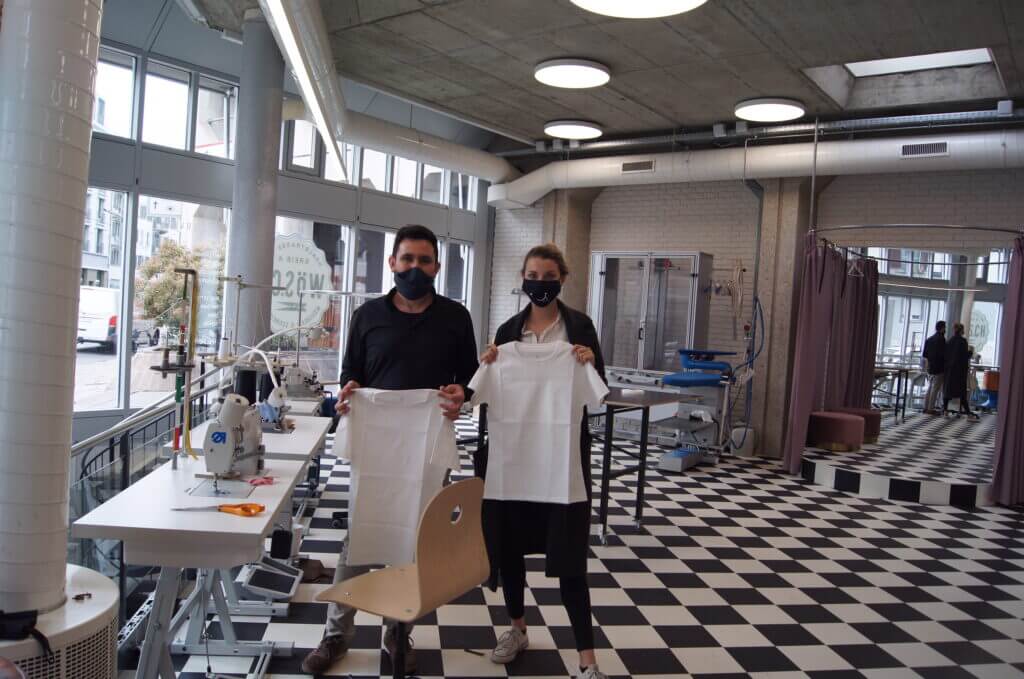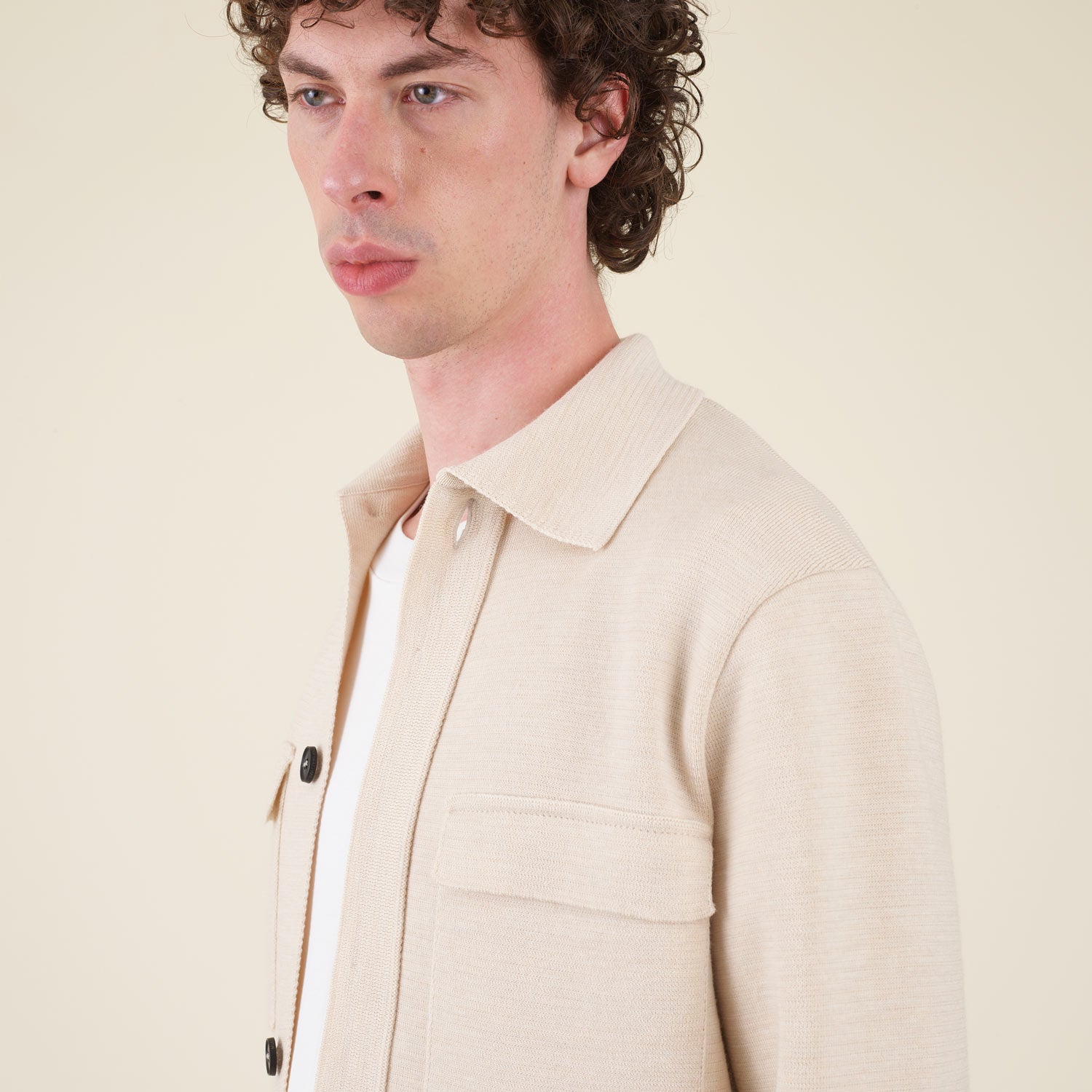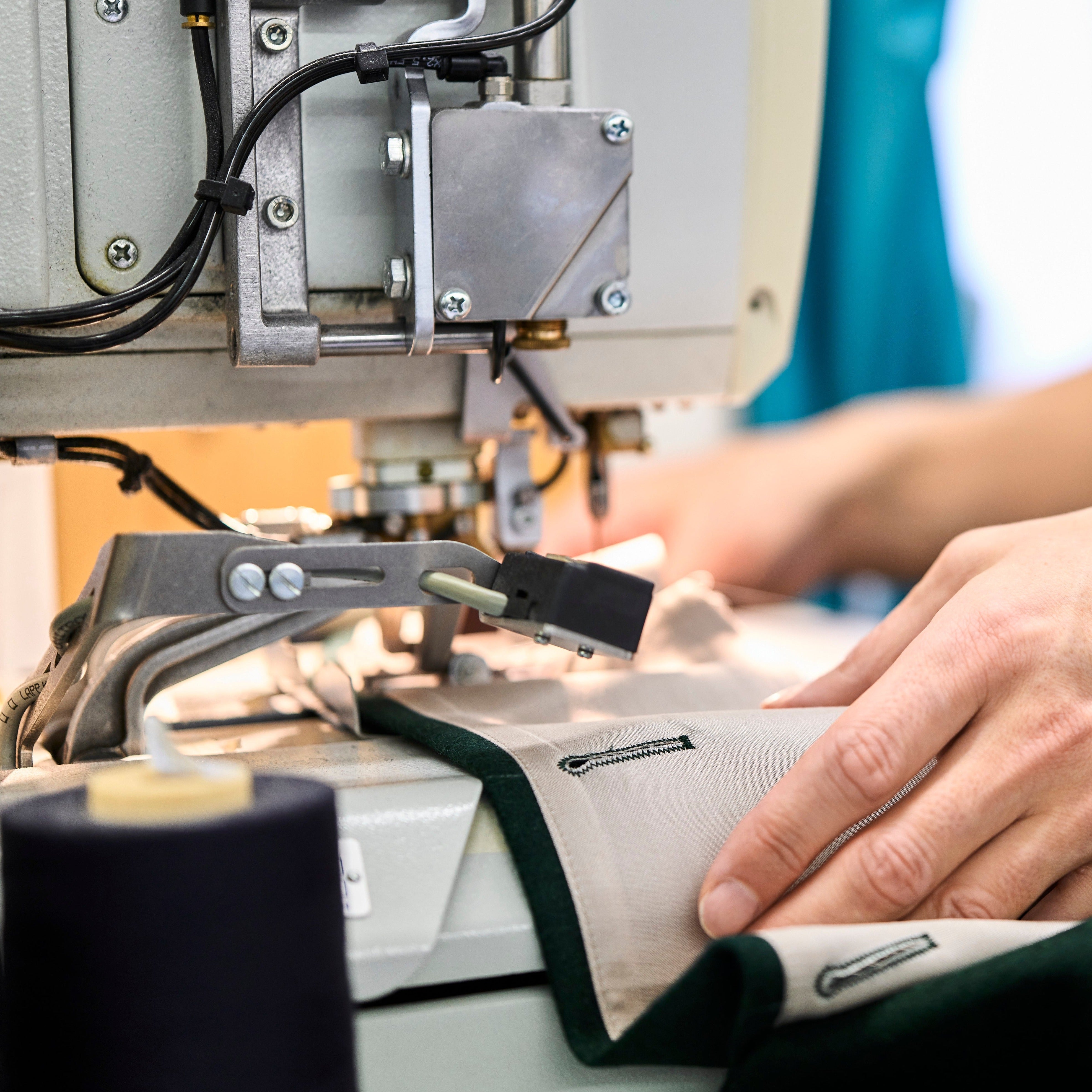
400 t-shirts saved locally
Muntagnard managed to repair and save 400 T-shirts locally. With this repair, 3810 km of transport and 1.5 tons of CO2 were saved.
It all started with a joint after-work beer
It was an unspectacular Thursday when we held our weekly online meeting within the team called "Thursday Night Drinks". As always, private and business mixed up as we sipped our drinks while relaxing in front of the screens. When Aline , who is responsible for operations, casually mentioned that the seam at the neckline of her MANGOLA T-shirt had torn, she was smiled at rather than wondering about the cause of the incident. Well, according to her own statement, this actually happens quite often. But then another team member, Zino , reports that the same thing happened to him. Now one or the other in the team got a little suspicious and it was decided that the matter must be investigated.
Challenge downplayed and acted too late
A few weeks and tests later, we got closer to the cause of the problem. To our astonishment, the problem was not per se with the cotton yarn itself, which is a lot less stretchy and resilient than yarn made of polyester, for example. The cause lay in its application and processing. Nowadays, most production facilities work exclusively with polyester yarns during processing. Its massively lower costs and simpler processing mean that only a few are familiar with the handling of natural yarns. This factor was underestimated when designing our new MANGOLA shirt, although we had to tackle exactly the same challenges when developing the LEGNA shirt .
So the realization came too late. 400 finished MANGOLA shirts were already on their way from our producer in Portugal to our warehouse in Switzerland. It was clear to us that the products neither correspond to our quality standards nor lead to lasting customer satisfaction. So we can't sell them like that. In the textile industry, such «faulty constructions» often lead to the products being disposed of and produced again, since it is hardly worth repairing the products for cost reasons. Not an option for us, of course. Luckily, a solution to repair the T-shirts had already been found, because we knew where the cause of the problem lay. Only the processing had to be adjusted, i.e. a decorative stitch at the neckline had to be removed to prevent the seam from tearing in the end product. So we wanted to repair the T-shirts and save them - but where?
Once Portugal and back - or not?
At first glance there was only one solution: the T-shirts have to go back to Portugal. Because nobody is as familiar with the material and the processing of the products as our producer himself. But the long journey back to Portugal was kind of on our stomachs. So a better and more environmentally friendly solution had to be found. Franca, our product developer, therefore started researching nearby tailors to evaluate a local option. The nearest tailor was - what a coincidence - directly on the other side of the street. So Franca and Aline hopped across the street and asked questions. The parts were viewed there rather skeptically, because neither the handling of this material nor orders with such quantities are part of the day-to-day business of the tailoring. By explaining the situation and digging in from our side, a couple of t-shirts were kept for testing. A few days later we received the repaired parts back and were absolutely delighted. That's exactly how we imagined it. Now we had to decide, do we take the risk and repair the Muntagnard T-shirts with a new partner with less experience at a higher price in Switzerland, but can save time, distance and logistical effort, or do we play it safe and send the parts back to Portugal. We opted for the local solution.
The solution: expensive, but worth every penny
The whole back and forth not only cost us a lot of nerves and time, it also increased the production price of our T-shirts by over 50% per piece. From a financial point of view, this is not a very recommendable way, because basically the T-shirt should now be sold at a much higher price. You could have a long discussion about whether it was all worth it and what you could have done better and differently. However, it is clear to us that we would act in exactly the same way again in such a situation. Not only have we been able to ensure the quality of our products, making our customers happy in the longer term, but we have also supported local businesses and prevented valuable raw materials and products from being wasted.
All in all: lucky in disguise
Looking back you can always laugh about such a story, because you know what you have learned from it. In our case there was a lot of learning. We will pay more attention to the following points in the future:
-
Agility: The development of a garment is a continuous learning process. Especially in the niche sector of circular clothing, in which we settle, a lot of knowledge is first acquired and each product has to be designed individually. Reacting flexibly to incidents and irregularities in product development and always acting in a solution-oriented manner is a key factor for us as a growing company.
-
Communication: Communication is the be-all and end-all. Better to ask more questions and check than not enough. If you are unsure or have concerns, check back. If we had communicated better within the team, the problem with the decorative stitching could have been identified earlier and addressed in good time.
-
«Out of the box»: Especially in the dynamic and fast-paced everyday life of a start-up, you quickly lose yourself in details and forget to step back and look at things from a bird's eye view. Instead of being satisfied with the first solution, it is worth breaking out of the tunnel and taking a quick look to the left and right – as in our case, across the street.
-
Trust: By trusting an unconventional solution, we were able to save almost 4000 km of travel and 1.5 tons of CO2 in addition to supporting a local tailoring shop that was badly affected by Corona. At the same time, the trust placed in the local tailoring has helped them to expand their own skills and win us over as a long-term partner.










